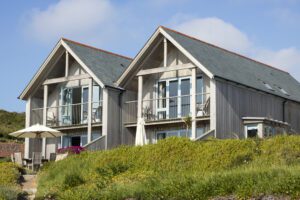<?xml encoding=”utf-8″ ?????????>
There is no denying that sustainable housing development has become a popular buzzword in recent years. With increasing awareness of climate change and environmental issues, there is a growing demand for eco-friendly and energy-efficient homes.
Marco Bitran will discuss sustainable housing development’s art and business, exploring its benefits and challenges.
Understanding the Value of Sustainable Housing Development
Sustainable housing development is not just about building environmentally friendly homes. It also involves creating living spaces that are socially and economically sustainable. This means considering the well-being of both current and future generations, as well as the surrounding community.
In this sense, sustainable housing development goes beyond just constructing energy-efficient buildings. It also considers location, materials used, and community impact. By prioritizing these aspects, sustainable housing development can benefit individuals, communities, and the planet.
The Art of Sustainable Housing Development
Sustainable housing development is not just about building energy-efficient homes, it is an art that considers the environment, community, and future generations. It involves designing and constructing buildings that have a minimal impact on the natural surroundings while also enhancing the well-being of its inhabitants.
One of the key aspects of sustainable housing development is incorporating green building practices. This includes using renewable materials, maximizing natural light and ventilation, and implementing energy-efficient systems such as solar panels and smart home technology. These practices reduce carbon footprint and result in cost savings for homeowners.
Another important factor to consider is the location of the housing development. Sustainable homes should be built in areas with access to public transportation, bike paths, and other alternative modes of transportation. This reduces reliance on cars and promotes a more sustainable lifestyle.
Moreover, sustainable housing development also considers the social aspect of community living. It aims to create diverse, inclusive neighborhoods that promote social interaction and cohesion. This can be achieved by incorporating communal spaces like parks and gardens and designing homes with shared walls or common areas.
Benefits of Sustainable Housing Development
One of the most significant advantages of sustainable housing development is its positive environmental impact. These homes drastically reduce carbon emissions and promote a more sustainable lifestyle by utilizing renewable energy sources and incorporating green building practices. This, in turn, helps combat climate change and preserves natural resources for future generations.
Furthermore, sustainable housing development can also bring economic benefits. By using energy-efficient materials and technologies, homeowners can save on utility bills and long-term maintenance costs. Additionally, with the rising popularity of eco-friendly homes, there is a growing market for sustainable housing development, creating new business opportunities and driving economic growth.
Challenges of Sustainable Housing Development
Overcoming Cost Barriers: Sustainable homes can still be more expensive, but developers are finding innovative solutions to cut costs without sacrificing eco-friendliness. This might include bulk-buying renewable materials, streamlining construction processes, or educating local workforces to specialize in green building methods.
Addressing Construction and Logistics Challenges: The logistics of building a sustainable home differ from those of conventional construction. Issues around sourcing materials, construction waste, and needing specialized workers often arise. However, technological advancements and a growing body of knowledge offer solutions to these challenges.
Educating Consumers and Changing Mindsets: One of the most significant hurdles to adopting sustainable housing is consumer awareness and mindset. Many still perceive sustainable homes as inaccessible or compromising on comfort. Thus, a critical aspect of the business of sustainable housing is in marketing and education—dispelling myths and showcasing the true benefits of eco-friendly living.
The Business of Sustainable Housing Development
While there is no doubt that sustainable housing development has many benefits, it is also a rapidly growing business. Developers and investors increasingly recognize the demand for eco-friendly homes and are capitalizing on this trend.
One of the main challenges in sustainable housing development is balancing the cost of building with the cost savings for homeowners. Using green materials and technologies can often be more expensive than traditional methods, making it a barrier for some developers. However, with the increasing demand and government incentives, the cost of sustainable building materials is expected to decrease.
Another aspect of the business side of sustainable housing development is marketing. Developers must effectively communicate the benefits of sustainable homes to potential buyers to attract them. This includes highlighting lower energy bills, improved indoor air quality, and a reduced carbon footprint.
Moreover, sustainable housing development also involves collaboration with various stakeholders such as architects, engineers, contractors, and local governments. It requires careful planning and coordination to ensure all parties align with the project’s sustainable goals.
The Future of Sustainable Housing Development
Despite its challenges, the future looks bright for sustainable housing development. With a growing global focus on environmental issues and the increasing demand for eco-friendly homes, this trend will likely continue to gain momentum in the coming years.
Moreover, as technology advances and costs decrease, sustainable housing development becomes more accessible and affordable. This will make it easier for homeowners and developers to embrace sustainable practices without breaking the bank.
Final Thoughts
Marco Bitran understands that sustainable housing development is crucial to creating a more environmentally friendly and socially inclusive society. By incorporating green building practices, considering location and community dynamics, and educating consumers, we can build homes that benefit the planet and promote the well-being of its inhabitants. The business of sustainable housing is also rapidly growing, providing economic opportunities while paving the way for a more sustainable future. With continued efforts and advancements, we can create a world where sustainable homes are the norm, not the exception.
